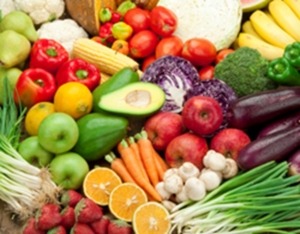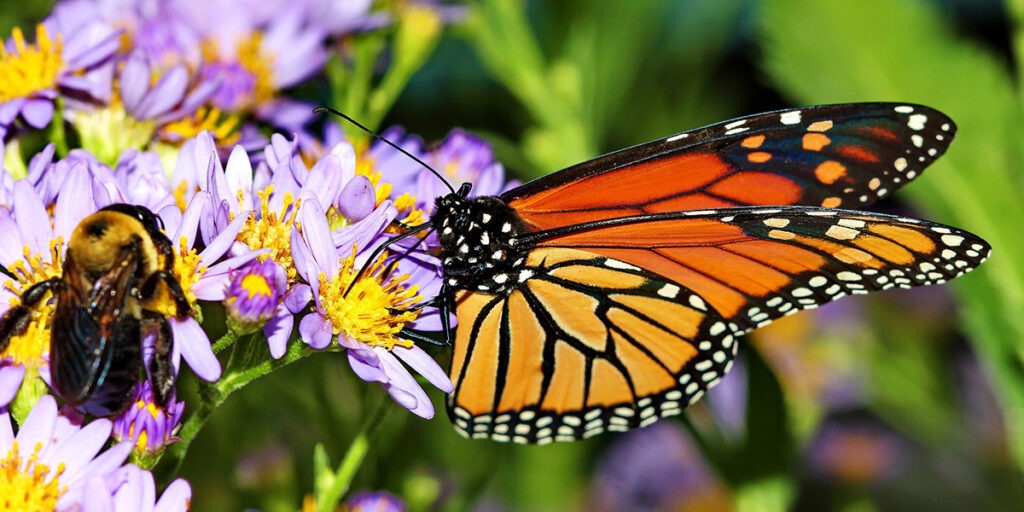By Kelly Bills
Executive Director
Pollinator Partnership
Pollinators need you. You need pollinators. Without the actions of pollinators, agricultural economies, our food supply, and surrounding landscapes would collapse.

Birds, bats, bees, butterflies, beetles, and other small mammals that pollinate plants are responsible for bringing us one out of every three bites of food. They also sustain our ecosystems and produce our natural resources by helping plants reproduce.
Pollinating animals travel from plant to plant carrying pollen on their bodies in a vital interaction that allows the transfer of genetic material critical to the reproductive system of most flowering plants – the very plants that bring us countless fruits, vegetables, and nuts, ½ of the world’s oils, fibers and raw materials; prevent soil erosion, and increase carbon sequestration
This nearly invisible ecosystem service is a precious resource that requires attention and support – – and in disturbing evidence found around the globe, is increasingly in jeopardy. Pollinator Partnership (P2) urges you know how this system supports you, and how your actions can help support healthy and sustainable pollination.
What is pollination?
When a pollen grain moves from the anther (male part) of a flower to the stigma (female part), pollination happens. This is the first step in a process that produces seeds, fruits, and the next generation of plants. This can happen through self-pollination, wind and water pollination, or through the work of vectors that move pollen within the flower and from bloom to bloom.
Who are the pollinators?
Birds, bats, butterflies, moths, flies, beetles, wasps, small mammals, and most importantly, bees are pollinators. They visit flowers to drink nectar or feed off of pollen and transport pollen grains as they move from spot to spot.
Why are pollinators important?
Some of the many foods that rely on pollinators Somewhere between 75% and 95% of all flowering plants on the earth need help with pollination – they need pollinators. Pollinators provide pollination services to over 180,000 different plant species and more than 1200 crops.
That means that 1 out of every three bites of food you eat is there because of pollinators. If we want to talk dollars and cents, pollinators add 217 billion dollars to the global economy, and honey bees alone are responsible for between 1.2 and 5.4 billion dollars in agricultural productivity in the United States. In addition to the food that we eat, pollinators support healthy ecosystems that clean the air, stabilize soils, protect from severe weather, and support other wildlife
What do we know about their status?.
Pollinator populations are changing. Many pollinator populations are in decline and this decline is attributed most severely to a loss in feeding and nesting habitats. Pollution, the misuse of chemicals, disease, and changes in climatic patterns are all contributing to shrinking and shifting pollinator populations. In some cases there isn’t enough data to gauge a response, and this is even more worrisome.
How can you help?
Pollinators need help, but we know how to help them! P2 scientists and research partners that have been studying pollinators for over three decades have been able to show that conservation techniques work. If everyone – home owners, local governments, national governments, and private industry – made the effort we could change the future for pollinators and secure our own.
Pollinator Partnership’s mission is to promote the health of pollinators, critical to food and ecosystems, through conservation, education, and research.
Signature initiatives include the NAPPC (North American Pollinator Protection Campaign), National Pollinator Week, and the Ecoregional Planting Guides. Learn more about how Pollinator Partnership is dedicated exclusively to the health of pollinating animals by downloading our Protecting Pollinators, People, and the Planet brochure!
https://www.pollinator.org/pollinator.org/assets/generalFiles/Pollinator-Partnership-Outreach-Brochure.pdf
Climate change refers to long-term shifts in temperatures and weather patterns, largely caused by human activities, in particular the burning of fossil fuels. The negative effects of climate change are a threat to the health of pollinators, people, and the planet.
Pollinators are in trouble!
You may never have thought about pollinators – the bees, butterflies, birds, bats and more, that are critical to food and ecosystems – and their relationship to climate change, but there is a strong connection. Climate change is thought to be a key cause of pollinator decline across the globe.
Pollinators are dying because their food and homes are disappearing, diseases have increased, and rising temperatures and extreme weather events are affecting their ability to survive – all of which are related to climate change.

